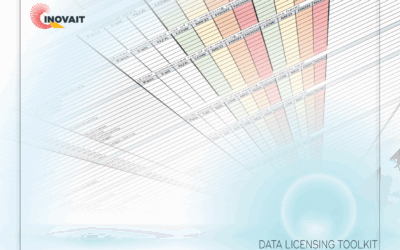Toronto, September 24, 2025 – Today, INOVAIT, Canada’s membership network promoting image-guided therapy (IGT) and artificial intelligence (AI), announced the latest recipients of the Pilot Fund at SCALE AI’s ALL IN event at the Palais des congrès in Montréal, Quebec. This competitive funding program is awarded to compelling medical technology projects that harness the transformative power of AI, machine learning, and big data analytics in IGT to advance medical innovation.
INOVAIT has meticulously selected 17 IGT-AI projects from a pool of compelling proposals, committing over $2.5 million to these projects. These projects span a wide range of image-guided therapy areas, including AI-enhanced non-invasive intestinal ultrasound for inflammatory bowel disease and microangioscope for stroke interventions, promising a future of exciting medical innovations.
The Pilot Fund is one of INOVAIT’s non-dilutive funding programs. It provides up to $150,000 for research and development projects lasting 9 to 15 months.
The combined value of the selected 17 projects is nearly $8 million, contributed by all project participants. These 17 projects will leverage partnerships across Canada, including organizations from British Columbia, Alberta, Ontario, Quebec, and Newfoundland and Labrador, showcasing the power of collaboration in advancing medical technology.
View a full list of the 2025 Pilot Fund projects and recipients here.
Reveal Surgical is leading one of the 17 projects. Their project, in collaboration with Reveal Life Science and Polytechnique Montréal, and the McGill University Health Centre, is developing Sentry Neuro and Breast, a technology that uses Raman spectroscopy and artificial intelligence to detect tumour margins in seconds during brain and breast surgery. Their INOVAIT Pilot Fund project will finalize the prototype, conduct a clinical study on 50 patients, and prepare for its deployment in hospitals.
“We’re honoured to be selected by INOVAIT and the Government of Canada as recipients of the Pilot Fund. This support accelerates the clinical readiness of our Sentry platform—an AI-powered molecular detection system that allows surgeons to identify tumour margins in seconds during brain and breast cancer procedures. With our partners at Polytechnique Montréal, Lumedlab, and the McGill University Health Centre, we are building a Canadian-made solution that will redefine surgical precision and patient safety globally. The INOVAIT Pilot Fund program plays a vital role in transforming breakthrough science into clinical impact—and we’re proud to be part of this innovative network.”
– Christian Sauvageau, CEO, Reveal Surgical
INOVAIT catalyzes Pilot Fund projects through the support of the Government of Canada’s Strategic Response Fund.
“Health care is one of the areas where AI can make the biggest difference for Canadians. From sharper imaging to faster, more accurate diagnoses and guidance for therapies, these tools are already changing how we detect, treat, and even prevent disease. That’s why the Government of Canada is proud to back INOVAIT’s Pilot Fund—helping homegrown innovators bring new medical technologies to patients sooner. Congratulations to this year’s recipients for pushing the boundaries of what’s possible in health care.”
– The Honourable Evan Solomon, Minister of Artificial Intelligence and Digital Innovation and Minister responsible for the Federal Economic Development Agency for Southern Ontario
“The Government of Canada is promoting collaboration and innovation across key industries in the Canadian economy. These projects from INOVAIT provide an excellent example of how we are fostering new AI applications for the benefit of all Canadians. Through the government’s support innovative programs such as INOVAIT’s Pilot Fund, we are helping Canadian companies develop the next generation of cutting-edge applications for AI in health care.”
– The Honourable Mélanie Joly, Minister of Industry and Minister responsible for Canada Economic Development for Quebec Regions
“AI is helping to transform the health care system by sharpening diagnoses, lowering the risk of medical errors, and improving treatments. It also reduces paperwork for doctors and nurses, easing their administrative workload to give them more time with patients and helping them to deliver timely, effective care.”
– The Honourable Marjorie Michel, Minister of Health
For a complete list of companies funded to date through INOVAIT, visit www.inovait.ca/funding. For any inquiries regarding INOVAIT or its programming, please reach out to inovait @ sunnybrook.ca .




